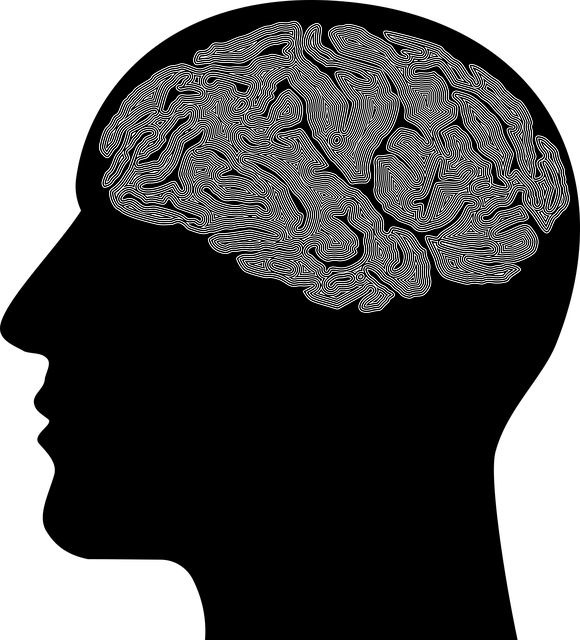Media representation of mental illness is a powerful tool that can either reinforce stereotypes or challenge societal perceptions. Accurate depiction involves recognizing mental health as diverse, complex, and treatable, with balanced storytelling. Engaging narratives, like those from Englewood Grief Counseling Therapy, promote understanding, destigmatize struggles, and encourage help-seeking behaviors. Realistic portrayals foster empathy, break down stereotypes, and make it crucial to counter misinformation through community outreach programs. Media literacy equips individuals to differentiate between facts and sensationalized narratives, shifting public perception and improving access to counseling services like Englewood offers.
Mental illness representation in media has long been a subject of debate, with stereotypes and misinformation prevalent. This article delves into this complex issue, offering a comprehensive guide to navigating the challenge. We explore the impact of media portrayals, presenting a case study on Englewood Grief Counseling Therapy as a successful example of accurate representation. Furthermore, we provide strategies for creating empathetic narratives and emphasize the role of media literacy in fostering positive change. By addressing these aspects, we aim to promote a more nuanced understanding of mental health in the media landscape.
- Understanding Mental Illness Representation in Media
- The Impact of Stereotypes and Misinformation
- Englewood Grief Counseling Therapy: A Case Study
- Strategies for Accurate and Empathetic Portrayal
- Fostering Positive Change through Media Literacy
Understanding Mental Illness Representation in Media

Understanding Mental Illness Representation in Media is a complex task that involves recognizing and addressing stereotypes and inaccuracies prevalent in popular culture. Media plays a significant role in shaping societal perceptions, and how mental illnesses are portrayed can either perpetuate harmful stigmas or foster empathy and understanding. For instance, media often depicts depression as a fleeting emotional state rather than a chronic condition requiring professional help, like Englewood Grief Counseling Therapy. Such representations not only misinform but also discourage those struggling from seeking the appropriate support.
Accurately representing mental illness involves showcasing its diversity, complexity, and the range of effective treatments available. This includes highlighting successful recovery stories, featuring diverse characters with varying experiences, and portraying the journey towards healing without oversimplifying or romanticizing it. By promoting balanced and realistic portrayals, media can significantly contribute to Depression Prevention, Conflict Resolution Techniques, and Mental Illness Stigma Reduction Efforts, ultimately fostering a more compassionate and informed society.
The Impact of Stereotypes and Misinformation

The media’s portrayal of mental illness often reinforces stereotypes that can be deeply harmful. Common misconceptions and simplistic depictions contribute to the stigmatization of those struggling with their mental health. This is particularly concerning as media has a significant influence on shaping public opinion, which can deter individuals from seeking help or understanding. For instance, portraying characters with severe depression as solely tragic or aggressive fails to capture the nuanced experiences of many who deal with mood management and emotional healing processes. Such representations may discourage people from recognizing their own symptoms or reaching out for support.
Englewood Grief Counseling Therapy highlights this issue, emphasizing the need for accurate representation in media. Stereotypes can make it harder for individuals to identify with characters going through mental health struggles, potentially delaying access to resources and recovery. Conversely, realistic portrayals can foster empathy and encourage open conversations about mental illness. Implementing community outreach program initiatives that counter misinformation is a vital step towards improving public understanding and encouraging those affected to seek appropriate care, including professional therapy services.
Englewood Grief Counseling Therapy: A Case Study

Englewood Grief Counseling Therapy serves as a powerful case study illustrating effective mental illness representation in media and its impact on communities. This therapy center has been at the forefront of promoting mental wellness and providing support for individuals grappling with grief and loss. By employing a holistic approach that integrates positive thinking and emotional regulation techniques, Englewood has successfully challenged stereotypes often associated with mental health struggles.
Through tailored counseling sessions, the therapy team equips clients with coping strategies to navigate difficult emotions. Their focus on emotional regulation helps individuals process their feelings in healthy ways, fostering resilience and overall mental wellness. This case study highlights how media representation can be a game-changer, encouraging open dialogues about mental illness and offering hope through accessible resources like Englewood Grief Counseling Therapy.
Strategies for Accurate and Empathetic Portrayal

Creating accurate and empathetic representations of mental illness in media involves a nuanced approach that goes beyond merely checking boxes. Englewood Grief Counseling Therapy highlights the importance of employing strategies that foster genuine understanding and compassion among audiences. This begins with consulting experts, including mental health professionals and individuals living with these conditions, to ensure authenticity throughout scriptwriting, casting, and production.
Empathy Building Strategies such as incorporating diverse narratives, showcasing recovery journeys rather than solely focusing on illness, and portraying characters with depth and complexity can significantly impact public perception. By integrating these methods, media platforms not only challenge stereotypes but also contribute to Mental Wellness Coaching Programs Development, encouraging viewers to approach mental health issues with more care and awareness.
Fostering Positive Change through Media Literacy

Media plays a significant role in shaping societal perceptions about mental health. By promoting accurate and nuanced representations, we can foster positive change. Englewood Grief Counseling Therapy suggests that media literacy is a powerful tool to achieve this. Educating individuals about how media portrays mental illness empowers them to recognize and challenge stereotypes. This process enables people to differentiate between factual information and sensationalized narratives, fostering a more empathetic understanding of those struggling with their mental health.
Media literacy programs can integrate discussions on emotional healing processes, stress management, and social skills training. By doing so, they equip individuals with the knowledge to navigate media messages critically. As a result, we can expect a shift in public perception, leading to better support systems and improved access to appropriate counseling services, such as those offered by Englewood Grief Counseling Therapy.
Mental illness representation in media has long been a topic of contention, but with strategies for accurate and empathetic portrayal, we can foster positive change. As seen in the case study of Englewood Grief Counseling Therapy, challenging stereotypes and misinformation is crucial. By promoting media literacy, we empower individuals to discern responsible representations and contribute to a more nuanced understanding of mental health. This collective effort ensures that media serves as a tool for promoting empathy, reducing stigma, and ultimately improving access to mental health resources.














